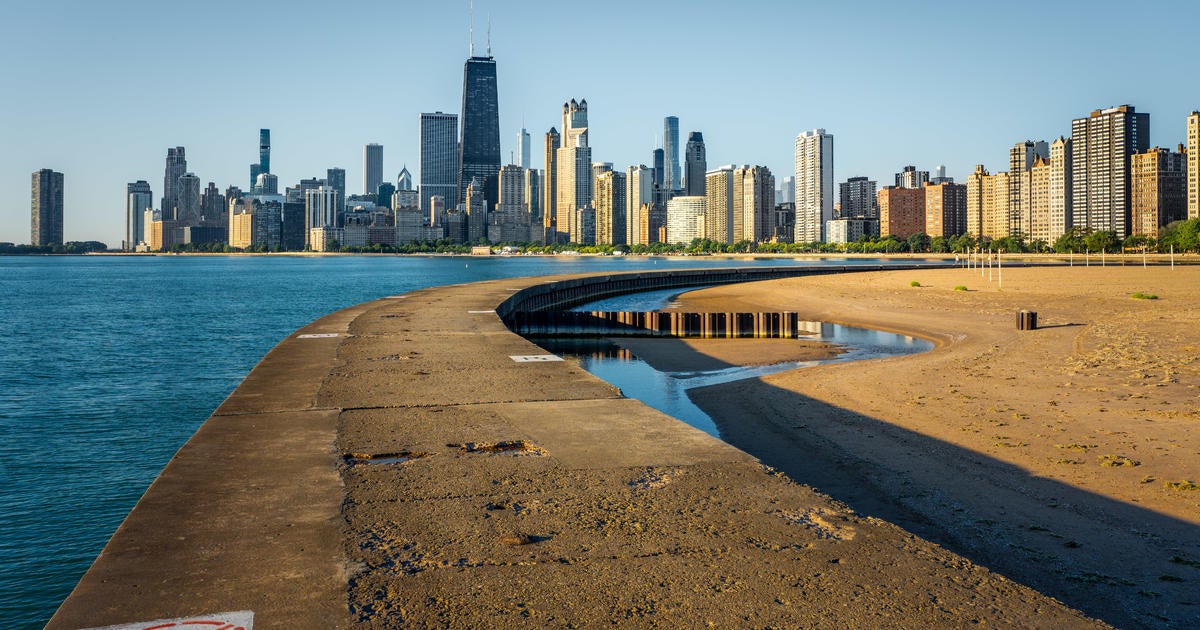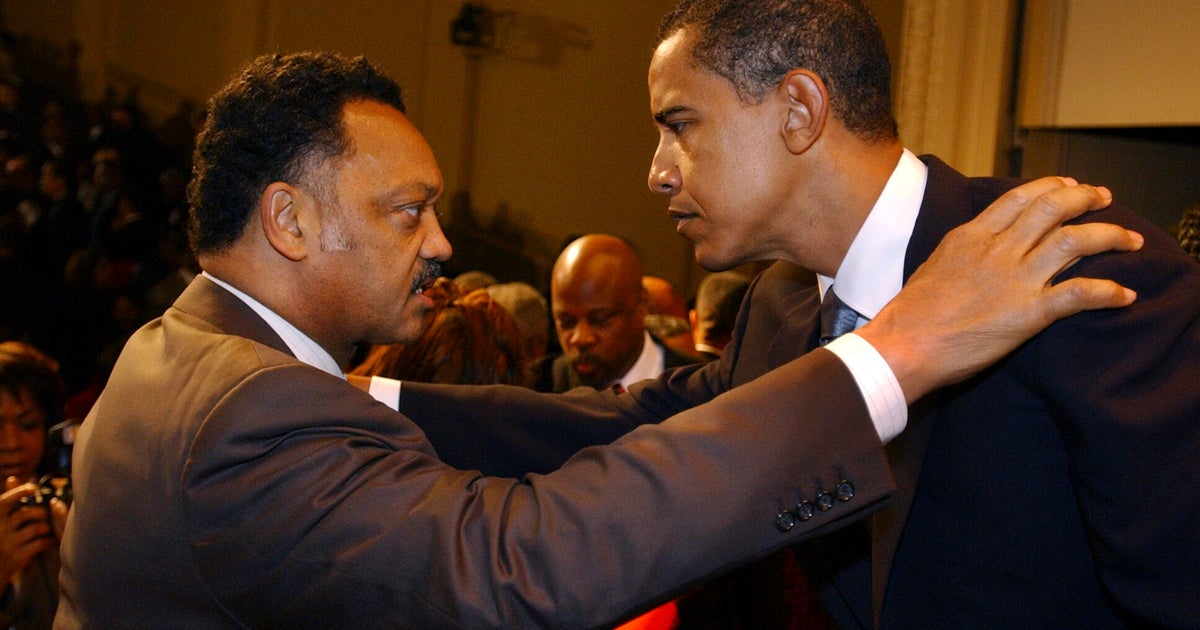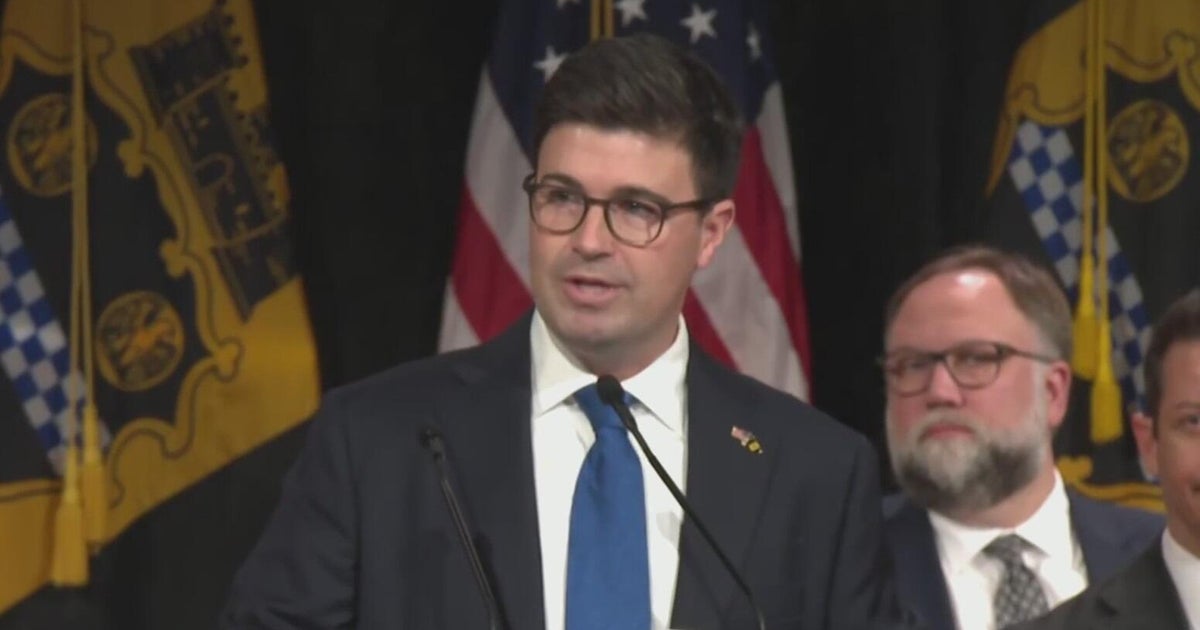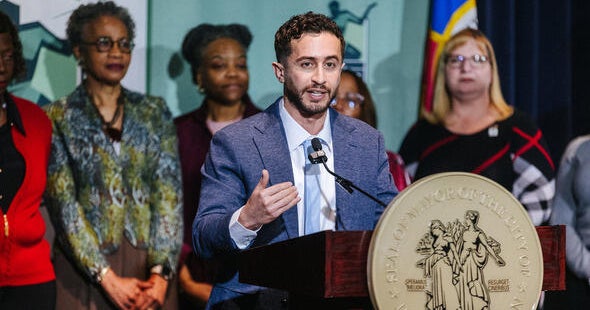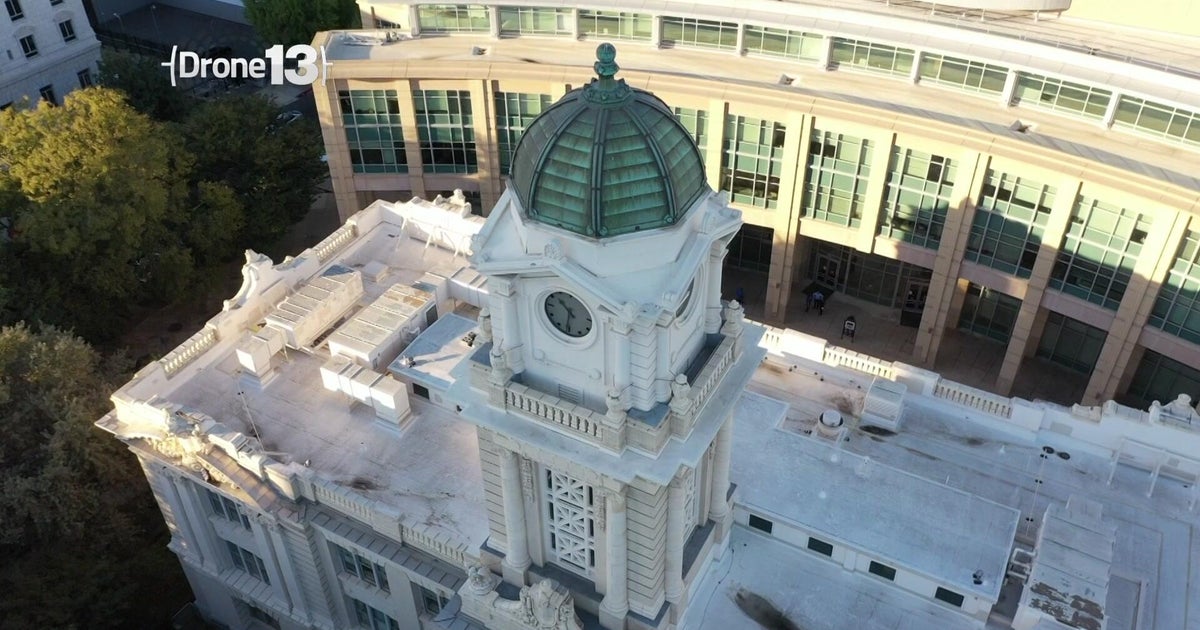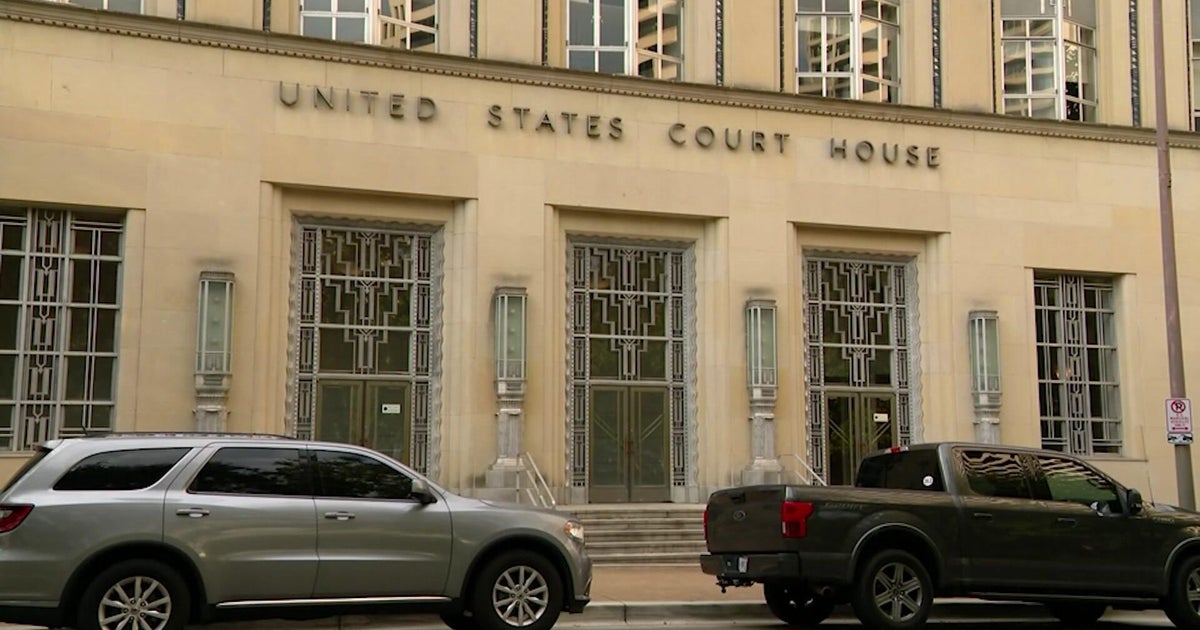Mayor Brandon Johnson pushes back enforcement of Chicago migrant shelter stay limit until March
CHICAGO (CBS) -- With thousands of migrants in Chicago facing a Thursday deadline to move out of city shelters, Mayor Brandon Johnson announced Monday that he is again delaying enforcement of the city's 60-day limit on migrant shelter stays, this time until mid-March.
"This has been unprecedented. This challenge has certainly been a weight in our city," Johnson said at a City Hall news conference. "Our plan for emergency temporary shelter was never meant as a long-term housing solution, but we want to give every person and every single family that has come to our city enough time to process their work authorization, find housing, start a new life in our great city,"
The Johnson administration had twice pushed back the 60-day shelter limit deadline earlier this month due to weather concerns. Thousands of migrants who had been facing a Thursday deadline to move out of shelters will now be able to stay at least until mid-March.
The mayor's office has said the policy, which was first announced in November, was intended to clear shelter space and speed up connecting migrants to permanent housing.
Johnson said his administration will continue to assess the shelter stay policy through the end of winter.
Department of Family and Support Services Commissioner Brandie Knazze said migrants who had been nearing deadlines to move out of shelters will get 30- to 60-day extensions.
The first group of 5,673 migrants who originally faced deadlines to move out between Jan. 16 and Feb. 29 will be given a 60-day extension starting from their original exit date. For example, if a migrant originally faced a Jan. 16 deadline to leave their shelter, they now have until March 16.
A total of 2,119 migrants who had been set to move out between March 1 and March 28 will get 30-day extensions.
Starting Monday, newly arriving migrants will get a standard 60-day notice to move out of shelters.
Another 5,910 migrants who entered shelters between Aug. 1 and Nov 16, 2023, are eligible for three months of rental assistance, and will begin receiving 60-day notices on Thursday. Migrants who entered shelters after Nov. 16 are not eligible for state rental assistance.
To help migrants move out of shelters, staff will conduct at least two so-called "checkpoint assessments" after migrants are given their 60-day notice to answer questions about finding permanent housing and other support services.
Migrants who can't find permanent housing by the 60-day deadline will be able to file for further extensions to stay in a shelter.
"All efforts will be made to limit disruption, and mitigate harm, especially for school-aged children," Knazze said.
Outside a temporary migrant shelter with a festive atmosphere Monday night, volunteer Adrianna Grimaldo applauded Mayor Johnson for not enforcing his 60-day shelter limit.
"There's really no good solution,", Grimaldo said. "I feel it was a great call to make it, you know, extend to March. I don't see how people could have been put out in potentially dangerous temperatures."
Last week, a group of 16 alderpeople led by Immigration and Refugee Rights Committee chair Ald. Andre Vasquez (40th) sent Johnson a letter urging him to rescind the shelter stay limits altogether.
"I think the city feels like there's a very real pressure of having limited funds in their view - and not enough to sustain for even the whole year, which is leading to decisions about what to do as far as capacity for the new folks who are coming as well," Vasquez said on Thursday.
Vasquez said extending the deadline was a reasonable solution for now.
"We definitely have concern about the eviction policy in general, but we do think that like holding it off until March is a fair way to kind of reevaluate," said Vasquez.
Vasquez said the looming evictions could have meant people on the streets or back at the landing zone – where new arrivals wait in city buses for shelter space to open up. As of Monday morning, no migrants were staying at the landing zone, while more than 14,000 were living in one of the 28 city-run shelters in Chicago. Another 184 were staying at O'Hare International Airport while waiting for a spot in a shelter.
John Zayas, associate pastor at Grace and Peace Church in Austin, who led an effort in November by 17 Chicago churches to move hundreds of migrants out of police stations into churches, said nearly 20% of those migrants have received work permits and are now in permanent housing.
"They're making lives for themselves. They didn't come here to be part of a system, but the help has helped them move forward," he said.
Not every migrant staying in Chicago's shelter network is eligible for work permits, but as of last week, a total of 2,722 have submitted applications. Approximately 1,800 of those migrants have had their applications approved, and 1,011 have their permits in hand.
In addition to the delay in enforcement of the 60-day shelter limit for migrants, Johnson also said shelters would be expanding medical services available to migrants, and stepping up existing monitoring for infectious diseases.
The mayor said the continuing migrant crisis is costing city government $1.5 million a day. Johnson and the City Council have budgeted only $150 million for the city's response to the migrant crisis for 2024, meaning funding will run out in April.
The mayor has not said what the city plans to do once that funding runs out if Chicago doesn't get more financial support from the federal government or the state of Illinois. Johnson noted the state already has provided significant funding to help the city, and repeated his call for the federal government to provide funding to help care for migrants.
"The federal government has to lean in," Johnson said.
The mayor's decision to delay enforcement comes just one day before a City Council committee was set to discuss the conditions of city shelters.
Other cities like Denver and New York have already enforced limits on how long migrants can stay at shelters.

